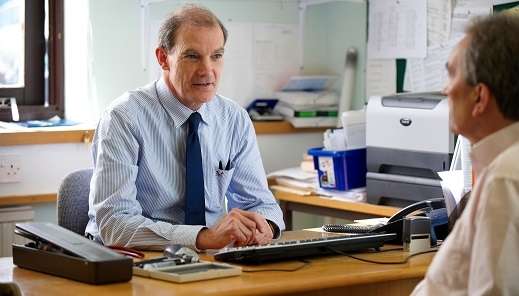A third of emergency cancer patients have not seen their GP

Around one third (34 per cent) of cancer patients diagnosed as an emergency in England had not consulted their doctor beforehand, according to a Cancer Research UK funded study published in the British Journal of General Practice .
The researchers analysed data from more than 4,600 cancer patients, covering 18 different types of cancer, to find out how many times they had visited their GP before their disease was diagnosed as an emergency.
If diagnosed as an emergency, patients are more likely to have poorer outcomes as they usually have a late stage of the disease.
The researchers based at UCL , The University of Cambridge , The University of Exeter and Public Health England found that among cancer patients who presented as an emergency, men, the elderly and those from more deprived backgrounds were more likely to have had no prior GP visits. There are a range of practical, emotional and health barriers that can make these groups less likely to promptly seek help from their GP.
The study also found that almost a quarter (23 per cent) of patients had visited their GP three or more times before being diagnosed as an emergency. Some of these patients had cancers that are more difficult to spot, such as myeloma and lung cancer, which could be the reason for the multiple visits.
Some people also had symptoms at a young age which can make a cancer diagnosis less likely as it's usually associated with older people, or may have had symptoms that are more unusual, so multiple visits are less surprising.
Dr Georgios Lyratzopoulos, one of the lead researchers based at UCL, said: "These findings tell us that some patients diagnosed as an emergency might not be acting on 'red flag' symptoms which could have prompted them to visit their GP. There's also a host of other factors that may be at play. For example, many elderly patients may find it difficult to get to the surgery or have other conditions which would prevent them from seeking an appointment, such as dementia.
"This highlights the need to explore all the reasons why cancers are diagnosed late, including what happens outside GP surgeries. It also shows that late diagnosis is more complex than it's often presented to be, as there are multiple reasons why cancers are spotted late."
Dr Julie Sharp, head of health information at Cancer Research UK, said: "Campaigns like Be Clear on Cancer have boosted the public's awareness of cancer signs and symptoms. But this study shows that there are multiple reasons that affect how and when a cancer diagnosis is made.
"We need to continue to increase awareness of cancer signs and symptoms and help break down the barriers preventing people from seeing their GP earlier, whilst GPs need better access to the right tests and referral routes if we want to see this number reduced."
More information: Gary A Abel et al. Emergency diagnosis of cancer and previous general practice consultations: insights from linked patient survey data, British Journal of General Practice (2017). DOI: 10.3399/bjgp17X690869



















